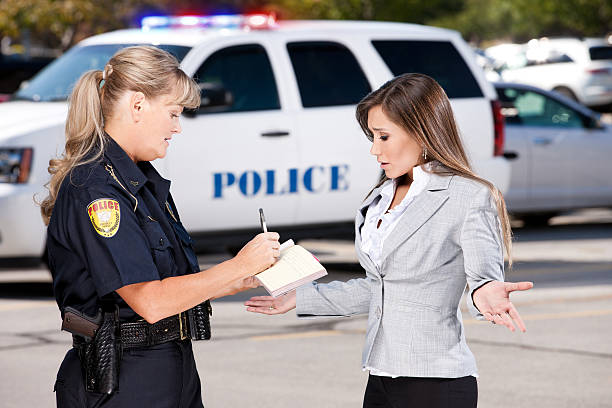Can Police in Washington Search Your Phone During a Traffic Stop? In Washington State, traffic stops can be stressful, and people often question the police’s power, especially when it comes to searching people’s phones.
It is important to know your rights if a police officer asks to check your phone during a traffic stop because phones hold private information. What the law in Washington says and your rights are summed up here.
1. Your Right to Privacy
The Fourth Amendment protects people in the United States from searches and seizures which are not lawful. Police usually require a warrant or clear proof of a crime to search your personal belongings.
In Washington, these rights cover all of your digital information, like the information on your phone. When police stop you for no reason, they usually can not check your phone without your permission or a warrant.
2. When Police Can Legally Search Your Phone
Only in certain cases can the police search your phone without a warrant.
If a police officer has a good reason to think that your phone has proof of a crime on it, they may be able to temporarily take it away. But even in these situations, they would still need an order to see what was inside.
Probable Cause and Exigent Circumstances:
The police have probable cause when they have a good reason to think you might be committing a crime or that your phone has evidence of criminal behavior.
For example, if they see you texting while driving, they can give you a ticket, but they can not read your phone’s texts without a warrant.
A warrantless search may also be legitimate in emergency situations where prompt action is required to prevent harm or damage to evidence, but that occurs rarely at a traffic stop.
Consent to Search:
An officer might ask you for permission to search your phone. You are allowed to decline politely.
If you give permission, the officer is allowed legally to search through your phone’s data without a warrant. Be aware that if you give access to your phone, you are waiving your Fourth Amendment right in this case.
3. Washington-Specific Laws and Cases
Digital privacy is of utmost importance in Washington State, just like in many other states. The courts have continually ruled that electronic devices can not be searched unless a warrant is presented.
The U.S. Supreme Court made a big decision in Riley v. California (2014) that police need a warrant to check a cellphone while someone is being arrested.
Washington courts have closely followed this decision, often standing up for privacy rights over police officers’ rights to look through cell phones without a warrant or permission.
4. Protecting Your Rights During a Traffic Stop
If you get pulled over, know that you do not have to give up your phone unless there is a warrant or a good reason. Here are some ideas:
Stay calm and polite: If you stay calm, your interactions with cops are less likely to get worse.
Know Your Rights: You can say no to a search if there is no order. Be polite and say, “I do not consent to any searches.”
Ask for More Information: If the police officer insists on searching your phone, ask them gently if they have a warrant or a good reason to do so. If things get worse, you can ask for a lawyer.
Summary
There it can not usually look in Washington through your phone, without your permission or, obviously, an order for search.
If someone requires doing this, you are going to be prepared knowing all your rights. It does not mean police won’t take your phone as there is proof of committed crimes but they usually need to acquire a warrant for them to snoop through your device.
To protect one’s privacy well, a person needs to be educated and polite, and know their rights.


 by
by 




